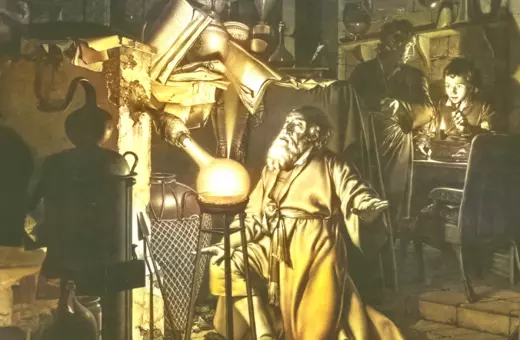“Heresy should be encouraged because that’s how breakthroughs happen.”
We often like to think we live in an age of reason. The fruits of modern science and technology are all around us: from smartphones and 3D printers to cures for some of history's most devastating diseases. We now have the highest life-expectancy our species has ever experience. Despite all this, a backlash seems to be emerging against certain aspects of science. Lately the revered process of peer review has been coming under fire – especially in the field of medical science. A recent piece in The Economist even argued that the internet means anyone can now appoint themselves a peer, thereby providing a challenge to the perceived power held by scientists.
In this forthright interview, cosmologist Carlos Frenk examines in detail one of the cornerstones of contemporary scientific process. He argues that peer review actually encourages unorthodox thinking, but warns, controversially perhaps, that science is a spectrum, and some disciplines may not be as rigorous as others.
Frenk is Director of the Institute for Computational Cosmology at Durham University, where he builds models in state-of-the-art supercomputers in an attempt to understand the evolution of the structures of our universe.
Do you think an inevitable part of the process of peer review is that it somehow prevents useful, fertile, if not correct ideas from being explored?
Let me first qualify my answer to this and to all of these questions – I speak from personal experience as a practitioner of a very particular branch of science which is astrophysics. I can probably speak for most of physics, but my experience is very much coloured by that.
Given my experience in physics, I'd say the idea that peer review tends to curtail heretical views is incorrect. In fact many, many heretical papers are continuously being published in the most reputable journals of physics precisely because the community recognises that heretical views that challenge the status quo are vital for the progress of science. Of course the really way-out crackpot ideas that are demonstrably incorrect, they get filtered out very quickly. If somebody wants to challenge the perceived, even the sacred code of physics, with arguments that are sound, they could be either theoretical or experimental.
The experimental case is quite simple: if the experiment is conducted correctly, and all the analyses of the data are correct, then I think the chances are the paper will be published. There are many examples, but one which was particularly spectacular was the discovery of the expansion of the universe, which was completely disruptive, even revolutionary. It was recognised that the set parameters of the universe were not what they had been held to be. It was a crisis, but the evidence was there and we had to accept it.
Physics is littered with completely novel ideas that challenge the orthodoxy, and they get published. Not only do they get published, but, for example, a paper of which I was an author was published in Nature and the subtitle of the paper was: “A Challenge to Cosmological Orthodoxy”. Nature were perfectly happy to use the phrase “challenge to orthodoxy” and the paper really was quite unorthodox.
I could go on and on. Most physicists think that Newton’s theory of gravity and Einstein’s of relativity are the correct description of the universe, but there are hundreds of papers challenging that view, seeking to debunk even sacred ideas like relativity. There's a whole branch of physics, an alternative theory to gravity called MOND (Modified Newtonian Dynamics), and these people publish papers.





















Join the conversation